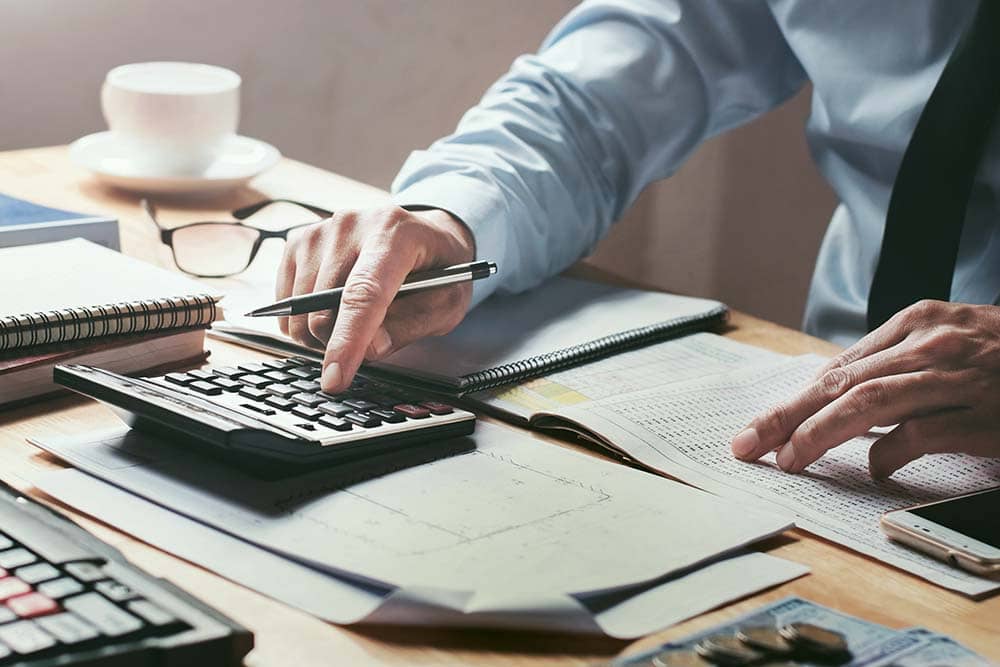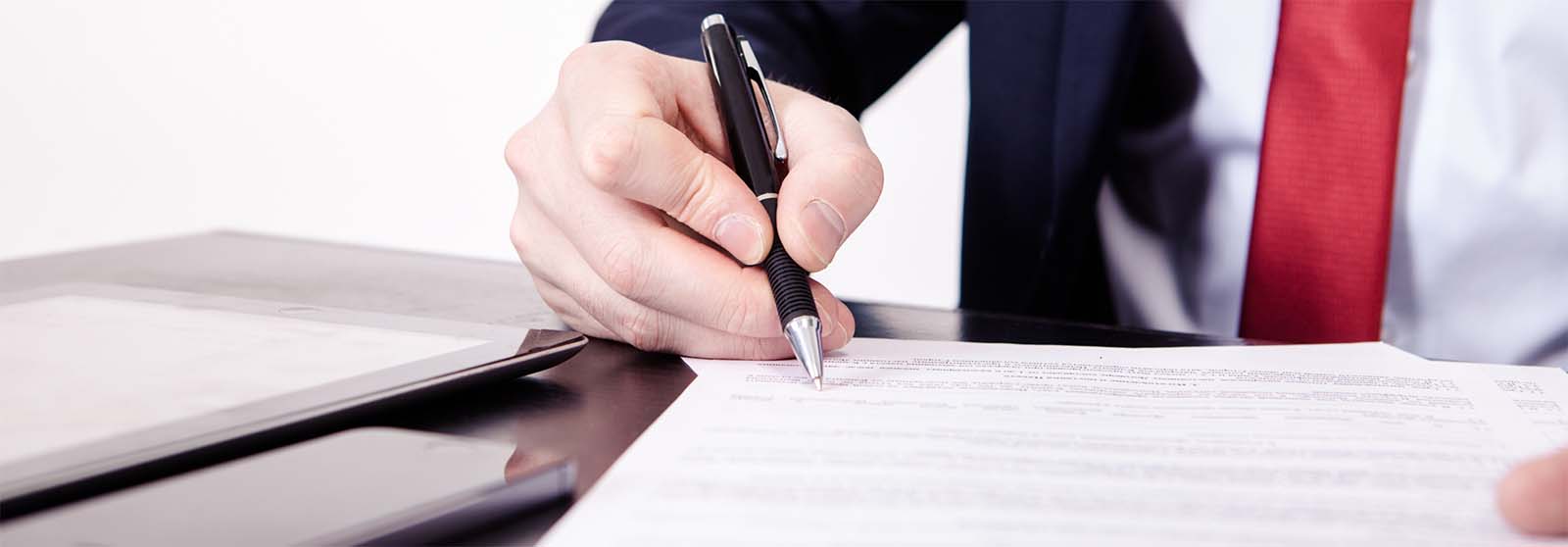IVA – Individual Voluntary Arrangements
If you’ve spent any time looking into solving a debt problem, the chances are that you will have come across the term Individual Voluntary Arrangement or IVA. As one of the most popular insolvency solutions in the UK, with over 71,000 people starting one in 2018 alone*, it makes sense that you may be curious about whether this could be the answer for a tricky financial situation.
What is an IVA?
An Individual Voluntary Arrangement (IVA) is a legally binding agreement between a debtor and their creditors to repay what they owe over an extended period of time, at a rate that is affordable for them. It’s a court-approved debt solution and is only available to debtors in England, Wales, and Northern Ireland.
How does an individual voluntary arrangement work?
An IVA is comparable to a formal repayment plan and is available to debtors in England, Wales and Northern Ireland who can pay some money towards their debts, but not the full amount. It must be set up by a licensed Insolvency Practitioner (often an accountant, solicitor, or an IVA company) who, for a fee, can help you to come to an agreement with any companies to which you owe money and deal with the ongoing administration of your agreement which includes distributing affordable monthly repayments between your creditors. For an IVA to come into effect, the voting creditors holding 75% of your debt need to agree to the arrangement.
What is a lump sum IVA?

If you have setup up an IVA, the payments towards your debts can be a one-off payment or a repayment plan of affordable payments over 60 or 72 months. Paying the agreement with a one-off payment is called a lump sum IVA.
Which debts can you pay off with an IVA?
You can use an IVA to help pay off many common offline and online debts, including:
- Personal loans
- Overdrafts
- Payday loans
- Catalogue debts
- Council Tax arrears
- Hire purchase debts
- Mortgage shortfalls
- Secured loans
- Credit card and store cards
- HMRC debt like income tax and national insurance contributions
Which debts can not be included in an IVA?
You can’t use an IVA to pay off:
- student loans
- magistrates’ court fines
- certain types of car finance
- Child maintenance or Child Support arrears
Are there any setup fees or upfront cost?
There are no set up fees due before your arrangement is agreed. There are, however, fees once the IVA is in progress. They will be part of the monthly payments and are set by the creditors who are part of the agreement. The fees will depend on the IVA company you are using and the amount of debt you might have.

How does an IVA affect your credit rating?
As is the case with many other debt solutions, having an individual voluntary arrangement will have an impact on your credit score and you may find it much more difficult to access further credit in the short term. The details will be included on your credit report for 6 years from the date the arrangement starts, whilst your details will also be included on the Individual Insolvency Register until 3 months after it has run its course. If you do seek additional credit of more than £500 whilst you are subject to an IVA, in most cases, you will require written permission from your Practitioner.
How can an IVA affect your life?
An IVA can be a viable route out of debt for some people, but this form of insolvency solution can also affect your day-to-day life. If you own expensive assets such as antiques, vehicles or jewellery, you may be asked to consider selling them to contribute towards your debts. If you own your own home, you may be required to re-mortgage the property to pay a lump sum towards your individual voluntary arrangement. How it will affect your life is highly dependent on your personal circumstances, and an Insolvency Practitioner will be able to talk you through how dealing with debt in this way might impact on you.
You can also see our frequently asked questions about IVAs and whether joint IVAs exist.
What is a self-employed IVA?
A self-employed IVA is a formal agreement for a debt management solution that has been specifically designed for those who work for themselves or own their own company. As with other IVAs, a self-employed one allows eligible debtors to pay off part of their debt over a fixed time period. At the end of this window (which typically lasts around 5 to 6 years), any unsecured debts that were included in the agreement (whether business or personal) will be written off.
During the period of the arrangement, you will need to agree and stick to a budget whilst making affordable monthly payments to a Licensed Insolvency Practitioner, who will distribute the funds to your creditors. An individual voluntary arrangement can be a realistic alternative to bankruptcy for self-employed people, allowing them to continue trading and earning money whilst dealing with their debts.
Can you get a mortgage?
It’s unlikely that you’ll be able to get a new mortgage if you have an IVA in place. For one thing, you will require the written permission of your Insolvency Practitioner if you wish to take out additional credit of more than £500 during the course of the individual voluntary arrangement. You may also struggle to find a lender who is willing to offer you a new mortgage whilst you’re in an IVA as your credit file will have been impacted.
The terms of your IVA may include provisions that relate to re-mortgaging your property if you are a homeowner. Re-mortgaging is not restricted in the same way as other borrowings, as you are expected to put the money you borrow towards paying off your debts.
Can you pay off an IVA early?

It may be possible to pay off your individual voluntary arrangement early if the opportunity arises – for example, if you receive a cash windfall from an inheritance or elsewhere. Although IVAs typically last for 5 to 6 years, there is no restriction on the minimum length of the agreement and the length of your agreement will depend on your personal circumstances.
If you’re considering paying an IVA off early, it’s important to consult your Insolvency Practitioner as doing so may come with fees and other consequences attached. Even if you do find a way to settle up early and gain the agreement of your creditors, the agreement will still be listed on your credit report for six years from the date it was approved.
How can an IVA fail?
An IVA will only usually fail if you are no longer able to make the agreed repayments. In the event that your agreement fails, your debts will remain in place and your creditors will once again be able to take action against you, including applying to make you bankrupt.
If you are unable to make the agreed repayments under an Individual voluntary arrangement, speaking with your Practitioner may help you to prevent the arrangement from failing. Ignoring the need to tell your insolvency practitioner about missing repayments or taking on further credit can prevent them from approaching your creditors and seeking their agreement to lower repayments.
IVA Register – How does it work?
If you enter into an IVA, your details will be added to the national Insolvency Register – a public register that anyone can search, including credit reference agencies. The information recorded to the register will include your name, address, date of birth, gender and the date that the agreement was approved. Your details will only be removed from the register 3 months after the individual voluntary arrangement has reached its end date.
What are the time limits?
Although there is no minimum period for an IVA, they typically last for 5 to 6 years. The length of any debtor’s agreement will depend on their own circumstances and debts and an Insolvency Practitioner will be able to give advice on what an arrangement might look like for you.
Bankruptcy

IVAs and bankruptcy are two different forms of insolvency, but despite falling under the same bracket they work quite differently. Whilst they both have the potential to write off some or all of your debt, IVAs are frequently viewed as a less serious debt solution compared to bankruptcy and they won’t usually affect your ability to get certain kinds of employment and won’t impact on your credit file quite so badly.
Trust Deed
Trust deeds are a Scottish option for dealing with unmanageable debts that works quite similar to an IVA. They are available solely to residents of Scotland. You can learn more about protected trust deeds here.
Debt Management Plan
IVAs and DMPs are both popular yet quite different solutions to debt problems. Neither of them is ‘better’ than the other, as the best debt solution for you will depend on your current situation and personal circumstances.
Unlike the court-approved approach taken by individual voluntary arrangements, debt management plans are informal arrangements reached between a debtor and their creditors to deal which may include freezing interest and charges against what is owed and making lower repayments. DMPs are often viewed as a flexible, temporary way of managing your debt during a change in circumstances or whilst you investigate other options. You can stop a DMP whenever you wish and adjust repayments as necessary with the agreement of your creditors.
By contrast, an IVA requires a more formal approach and the assistance of an Insolvency Practitioner. Unlike a DMP, entering into an individual voluntary arrangement will lead to your name being added to the Insolvency Register but it does come with some additional protections. Creditors will no longer be able to contact you to chase repayments and end date will be set, after which all included debts will be written off.
Completion Certificate
An IVA competition certificate is issued at the end of the agreement to mark its completion and to confirm that you are no longer legally bound by the terms of the agreement you reached with your Insolvency Practitioner and creditors. When you receive a competition certificate, it means that the process is over.
At the same time as you receive an IVA completion certificate, your Insolvency Practitioner will inform the Insolvency Service and they will prepare to remove you from the register – usually 3 months after the end of your IVA.
Debt advice if you are struggling
If you find it hard to manage your debt and deal with everyday expenses, there is help available. You can turn to the following organisations for help and online debt advice:

